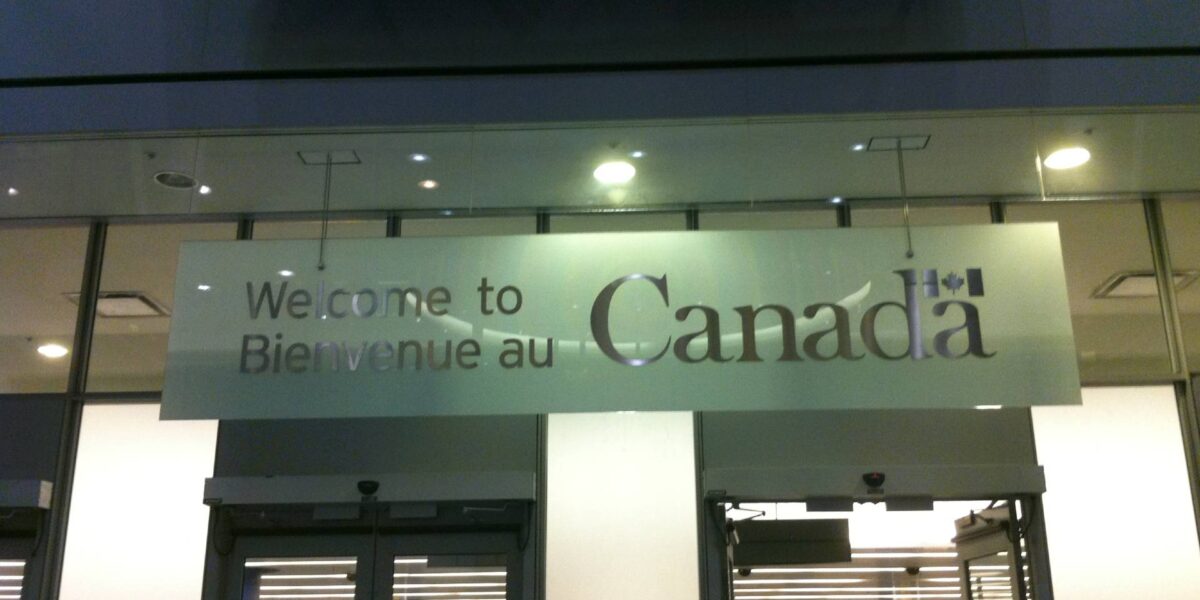Immigrants often become easy political targets, easy scapegoats. They’re essentially groups of people – often the other – swooping into a status quo and disrupting it. Sometimes countries want them to fill menial labour jobs, balance an ageing population; and other times when various population determinants are hitting the government’s targets, immigrants become the unwanted child. Immigrants usually flock from their nest to a new home in search of something better—better job, better house, better rights, better air, water, life. Just something a little better than what they’re getting back home. But hidden in plain sight is also the shadow immigrants leave behind back home.
Back home
When we look at immigrants, we only fixate on their journey for that something better and we forget that they also leave many things behind—comfort, food, friends, parents, family, relatives, and most importantly, their roots.
I’m an immigrant. I came to Toronto from India almost five years ago. I came seeking that something better. My brother’s story is the same. He came here 20 years ago, also chasing that glitter. And in doing so—like so many immigrants, we left our parents behind. Initially, the choice of moving to a new country was very black and white…until my parents started ageing. Then the choice became fuzzier and fuzzier…until my mother got terminal brain cancer, and then I lost the plot of my choice (of immigrating) altogether.
Over the 14 months that my mother lived with grade 4 Glioblastoma (brain cancer), my brother and I took turns taking time off work and flying “back home” to be with my mother, support her and my father, the primary caregiver, and spend as much time with her, knowing very well that the four of us only had so much time left together. Back in Toronto, it was painful to be away from her. I felt decapitated. I was now tied to a job that was paying for my life and my livelihood. It was then the hidden cost of immigration hit home.
Over the phone, my father gave my brother and I daily updates on how my mother was doing. But over the year and half that she was sick, nothing could alleviate the feeling of torn-ness my brother and I experienced—tethered to the building blocks we had established in our new home, and equally tethered to our pillars back home.
Since it was not practically possible to be beside my ailing mother, we had to search for an alternative support system. We were lucky enough to be connected to a non-profit that works in providing medical, material, and moral support to cancer patients and their families, all free of cost. CanSupport is India’s largest and free home-based palliative care program, caring for 2,600 cancer patients and their families at any given point. Their team checked in on us regularly, if not daily, through phone calls, scheduling doctors and nurse visits, sending home a counselor to provide moral support, and they even supported us with special material support like bedding, to make my mother’s palliative care as pain free as possible.
Our mainstream, day-to-day is so enwrapped in capitalistic engagements that we often forget how frail human beings are. We forget that we may become ill at any point, lose our jobs, die, leave loved ones behind, experience a debilitating injury that strips us of our livelihood. When everything is going as per normal, we gloss over the necessity and importance of social security systems and funding non-profits like CanSupport that step up when the public health care system disappoints us and the private sector fails us.
Everything is well till it’s not. These systems exist because of the fundamental nature of our existence. That is, human beings are vulnerable as hell, things may change at any turn and we may need help.
I know that my family woke up one day certainly needing that help. I’m in the process of grieving, and I suspect this will be a lifelong process. I see no full stop to missing the woman who gave me life and wishing she was still here, physically present, to witness the shape my life will take. But I’m learning that her legacy carries on through us—my father, brother and I have the power to carry Neena through us, through the people we become and through the ways in which we honour her daily.
So, to honour her and carry on her legacy, on September 6, three months since my mother left us, my family and I are walking 61 kms to celebrate 61 years of her life and raise funds for CanSupport who supported her when we so badly needed help. Here’s our fundraiser, and I implore you to support us in any way that is possible for you – through donating, reading, or sharing: https://www.ketto.org/fundraiser/walking-61kms-for-neena
Note: You may find the funding page asking for your passport number. You can simply put NA in that field. India has tight laws around foreign donations to NGOs which is why it is asking for that.



